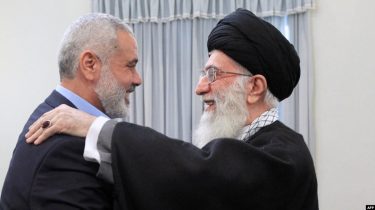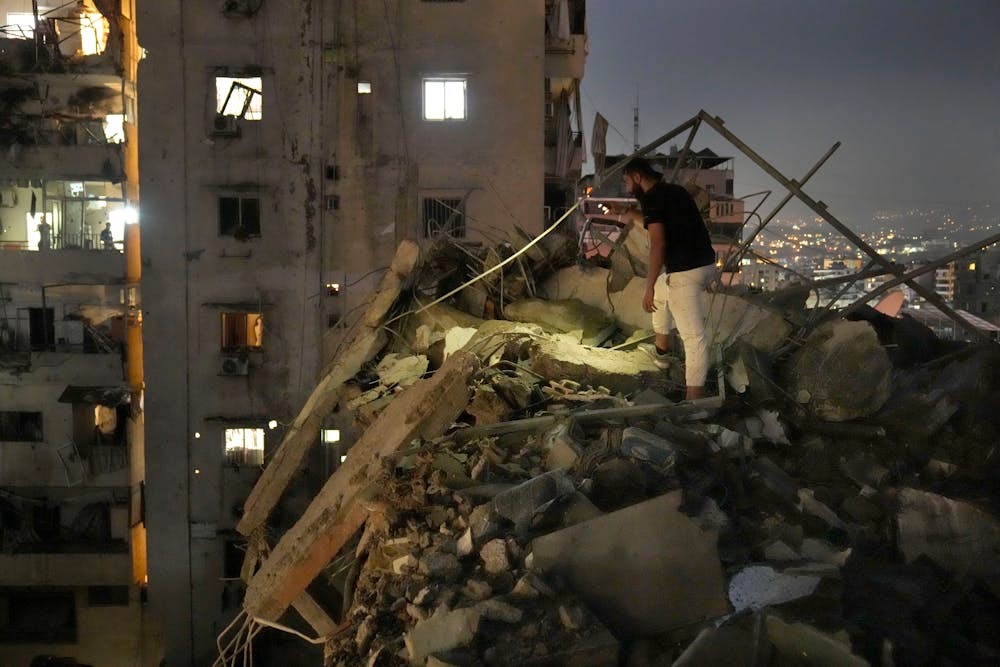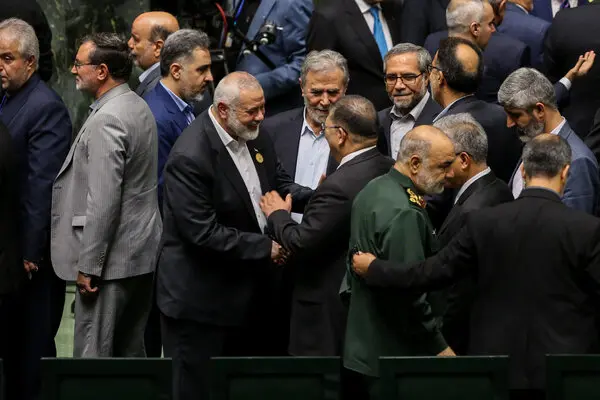Haniya’s killing in Tehran raises tensions over a possible expansion of the conflict from Gaza throughout the Middle East

Hamas leader Ismail Haniyeh was killed early Wednesday morning in Tehran, the capital of Iran. The attack sparked “threats of retaliation against Israel” and fueled fears that the conflict in Gaza could escalate into a wider war in the Middle East. Reuters reports.
Murder of Ismail Haniyeh: Iran declares national mourning and threatens retaliation, Israel remains silent
The Palestinian militant group and Iran’s Islamic Revolutionary Guard Corps confirmed the death of Ismail Haniyeh. Guardians said the attack occurred shortly after Haniyeh attended the inauguration ceremony for Iran’s new president.
Despite widespread speculation about possible Israeli involvement, the government led by Benjamin Netanyahu has denied any involvement and has refrained from commenting on the matter.
Ismail Haniyeh, who normally resided in Qatar and represented Hamas in international diplomatic efforts, was killed amid the ongoing conflict in Gaza, which began with a Hamas attack on Israel on October 7. Haniyeh took part in indirect negotiations with international mediators, seeking to establish a truce in the Palestinian region. His death came less than 24 hours after Israel said it had killed a Hezbollah commander in Beirut in response to a deadly strike in the Golan Heights.
Hamas’s armed wing warned in a statement that killing Haniyeh would “raise the conflict to a new level and cause serious consequences.” Iran, vowing to retaliate, declared three days of national mourning and blamed the United States for supporting Israel. Iran’s Supreme Leader Ayatollah Ali Khamenei said Israel deserves “severe retribution” and that Tehran must avenge the Hamas leader’s death. Iranian forces have previously taken action against Israel during the current Gaza conflict.

An official representative of the Israeli government declined to comment on the liquidation of Haniyeh, but stressed that Israel is on high alert for possible retaliatory actions from Iran. Speaker David Menser told a press briefing that the country remains committed to efforts to establish a ceasefire in Gaza and the release of Israeli hostages held by Palestinian militants.
While the US has not commented on Haniyeh’s killing, international reactions and internal unrest in Israel and Gaza are making matters worse
US Secretary of State Antony Blinken avoided commenting on Haniyeh’s killing during his speech in Singapore, focusing on the fact that a ceasefire agreement in Gaza is critical to preventing further escalation in the region. In an interview with Channel News Asia, he emphasized that the United States was not aware of the incident and had nothing to do with it. Israeli Defense Minister Yoav Galant said that Israel does not seek to expand the conflict, but is ready for any development of events. In turn, Qatar, which together with Egypt is mediating negotiations to end hostilities in Gaza, condemned the killing of Haniyeh, calling it a potentially dangerous escalation of the situation.

“How can you hope for a successful mediation when one side commits political assassination and continues to attack civilians in Gaza during negotiations?” – said Qatari Prime Minister Sheikh Mohammed bin Abdulrahman Al Thani in X. Egypt expressed the view that this act demonstrates the lack of political will on the part of Israel to ease tensions. The incident was also condemned by China, Russia, Turkey and Iraq.
In response to the killing of Ismail Haniyeh, Iran’s top security authority met to discuss next steps, according to sources with knowledge of the situation. Palestinian President Mahmoud Abbas condemned the act, while Palestinian groups in the West Bank called for strikes and mass protests. In Israel, by contrast, spirits are upbeat as many Israelis view the killing as a significant achievement in the fight against Hamas. Gazans, meanwhile, fear Haniyeh’s death will further escalate a conflict that has already caused much suffering in the region.
